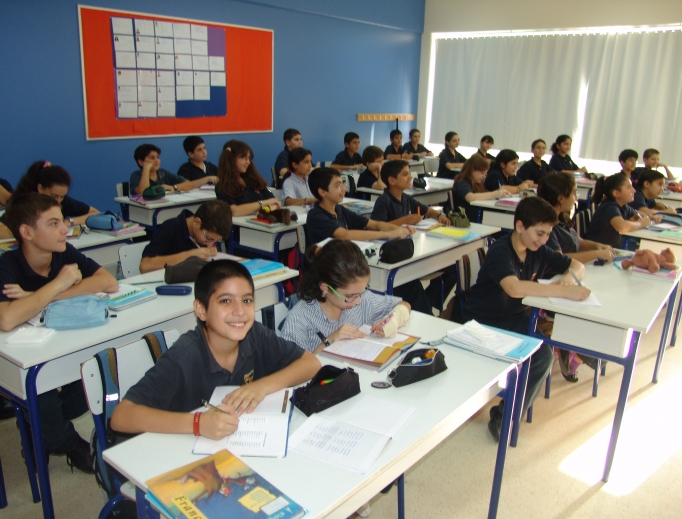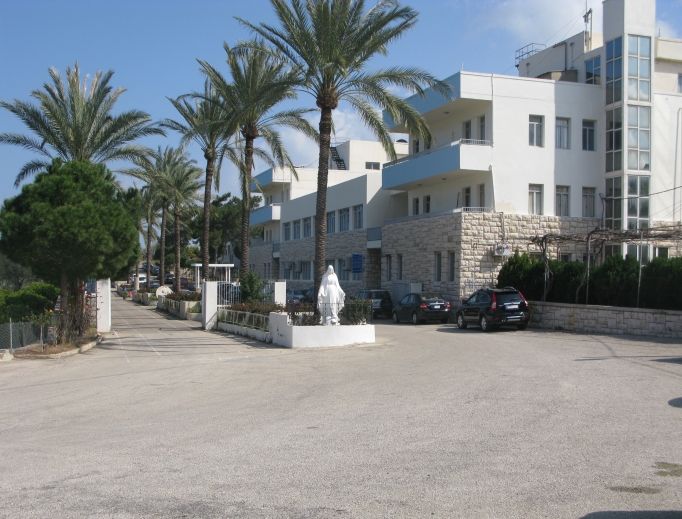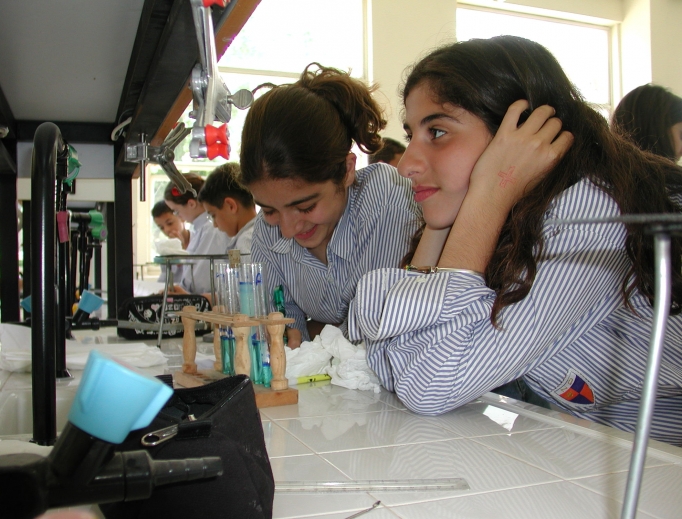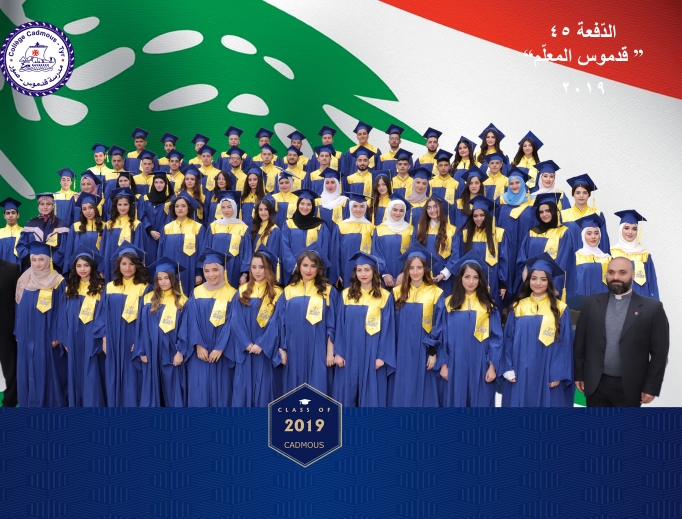Lebanon’s ‘Pillar’ of Catholic Education at Risk of Collapsing
Lebanon’s longstanding tradition of Catholic schools stems from the Pontifical Maronite College in Rome whereby many Maronite priests, returning to Lebanon from Rome with a zeal for education, in turn opened schools all over their homeland.

BEIRUT — Catholic education — long one of the pillars of Lebanese society — is in danger of collapsing due to the country’s dire economic crisis.
A public letter to the president of Lebanon, signed by the General Secretariat of Catholic Schools in Lebanon sounded the alarm, warning that 80% of the country’s Catholic schools are at risk of closing for the coming school year “because of the economic situation and the neglect of the state in the performance of its duties.”
“This forced closure will force hundreds of thousands of students” to resort to public education, “not to mention the loss of jobs by tens of thousands of teachers, employees and workers, and to the increase in unemployment and poverty in the country,” the letter stated. “This danger touches on the very essence of Lebanon's identity and mission.”
The emergency facing Lebanon’s private educational institutions mirrors the near-collapse of the country’s economy. Just in the last few months, more and more of the middle class have become poor.
Lebanese Cardinal Bechara Rai, Maronite Catholic patriarch of Antioch, has often referred to the country’s private education system, in particular Catholic schools, as “one of the pillars of Lebanon.”
More than two thirds of Lebanon's students (pre-kindergarten to grade 12) are educated in private schools, totaling around 710,000 students, with approximately 200,000 attending Catholic schools.
Education Tradition
Lebanon’s longstanding tradition of Catholic schools stems from the Pontifical Maronite College in Rome for Maronite priestly formation, founded by Pope Gregory XIII in 1584 and entrusted to the Jesuits. Many Maronite priests, returning to Lebanon from Rome with a zeal for education, in turn opened schools all over their homeland.
Typically, Lebanon’s Catholic schools are run by religious orders, and are not parish schools.

“Centuries ago there were no schools but Catholic and Christian schools in Lebanon. We can say that Catholic schools made this country,” Jesuit Father Charbel Batour, rector of Collège Notre-Dame de Jamhour (Our Lady of Jamhour), told the Register. One of the Middle East’s most prominent educational institutions, Jamhour, located in the Beirut suburb of Baabda, was established by the Jesuits in 1850. It had a 2019-2020 enrollment of 4,300 students, preK-12.
Most of Lebanon’s private schools are tri-lingual, with students learning in Arabic, French and English. “The level of education in Lebanon in general is very good,” said Father Batour, a level demonstrated by students from Jamhour and other Lebanese private schools who attend major universities in Europe and the United States, including Ivy League schools.
Equal Opportunity
Catholic schools in Lebanon are known for educating not only Christians, but also Muslims and Druze as well, side by side. Druze are a monotheistic people who constitute about 5.2% of the population of Lebanon. Christians currently account for approximately 40% of Lebanon’s resident population.
“The history of Catholic schools in Lebanon shows that they played a great role in supporting national unity between Christians and Muslims,” explains Maronite Father Jean Younes, principal of Cadmous College (a pre-kindergarten to grade 12 Catholic school) in the Biblical coastal city of Tyre in southern Lebanon. Established in 1966 by the order of Lebanese Maronite Missionaries, Cadmous’ current enrollment matches the demographics of Tyre: about 10% Christian and 90% Muslim.

Lebanon’s Catholic schools, Father Younes stressed, “have been an oasis of dialogue between East and West, and this was confirmed by our Pope St. John Paul II when he visited Lebanon in 1997 and said: ‘Lebanon is more than a country; it is a message for the world.’”
“The Catholic schools in Lebanon teach human and spiritual values such as freedom, respect for the other, openness to religions, and witness to Christian love in a world suffering from wars and the abolition of the other,” Father Younes continued. “Without a doubt, our Catholic schools were found in this tormented East to carry the message of hope for a better future.”
In their May 20 letter to Lebanese President Michel Aoun — a Maronite Catholic — the superiors of the country’s religious orders reminded him of their historic role in educating Lebanese of all faiths.
“Since their inception, our monastic orders have attached great importance to ensuring education for all Lebanese, hundreds of years before the proclamation of the State of Greater Lebanon (in 1920). They have carried out pioneering work in towns and villages, participating in the elimination of illiteracy, without any discrimination as to regional, social or religious affiliation, thus contributing to the constitution of Lebanon's fundamental wealth, its exceptional human resources. In this, they have remained faithful to the mission of the Church, as ‘Mother and Educator,’ ensuring the development of man in knowledge, love, solidarity and national belonging,” the letter to President Aoun stated.
Economic Costs
Speaking at an annual meeting of the General Secretariat of Catholic Schools in Lebanon September 2019, Cardinal Rai — an alumnus of Jamhour — said the amount of unpaid tuitions in Catholic schools amounted to $32 million. And that was before Lebanon’s financial crisis took a freefall, exacerbated by the nationwide protests against the corrupted ruling class that erupted a month later, followed by COVID-19 shutdowns.
“This crisis in the schools is translated into the incapacity of the families to pay the tuition fees. It’s as simple as that,” said Father Batour, Jamhour’s rector.
While the makeup of Jamhour’s students reflects religious as well as social diversity, ranging from the rich to the poor, notes Father Batour, the middle class in Lebanon is becoming “simply poor.”

“This is why we are seeing that, even in Jamhour, people are not able to pay” their children’s tuitions, he said of the renowned Catholic school.
Noting that “the public schools in Lebanon are not of good quality,” most Lebanese parents don’t consider public education as a suitable option, Father Batour said. “It’s very well known that Lebanese families are ready to sell everything in order to give their children a good education,” he pointed out.
In response to the declining economic situation, Jamhour four years ago established an endowment fund through an intensified fundraising campaign. The school has an extensive alumni base around the world, including in the United States.
“This fund will help the school through this year and I would say the next year. I hope it will be able to help the school and sustain the families through the crisis,” Father Batour said.
Schools on the Verge
However, three small Jesuit schools in the Bekaa, a region in eastern Lebanon near the Syrian border, are in danger of shutting down. The three schools have a combined enrollment of 1,650, of whom 80-85% of its students are Muslim. One of the schools, for example, dates back to 1890.
Schools that remain open face uncertainty about enrollment. As Lebanon witnesses one of its “darkest times” economically, the “massive economic strain” will likely force many Lebanese families to withdraw their children from private and Catholic schools and turn to public school,” said Father Younes, principal of the Cadmous school.

“Sadly, public schools in Lebanon are less than ready academically, logistically, and technologically to adhere to the needs of such vast amounts of students,” said Father Younes, who received his Ph.D. in philosophy (educational leadership) from Fordham University in New York.
“Frankly, I am very concerned regarding next year’s situation and the amount of students that we might have enrolled for the academic year 2020-2021,” he said.
Cadmous College had 1,125 students enrolled for the academic year 2019-2020. For 2020-2021, Father Younes expects a drop of about 25% in registered students due to the economic crisis and the economic impact of the COVID-19 shutdown on families. “Nevertheless, I know very well that the parents of our students are very committed to providing their children with the best quality of education, especially Catholic education, which highlights the ethics of living,” he stressed.
“Personally, I dread a time when Cadmous would have to close its doors due to the inability to pay teachers’ and staff salaries,” Father Younes said.
Vatican Aid
The warning letter to the Lebanese president about the Catholic schools’ emergency follows a May 14 announcement from the Vatican that Pope Francis donated $200,000 to fund educational scholarships in Lebanon. “I hope for similar initiatives,” said Father Younes. “I pray that we overcome this crisis and that the world helps us in this time of emergency, for we are in need, indeed.”
“If Catholic schools vanish from Lebanon, one of the most important pillars will be removed,” he added. “This will lead to the collapse of the country.”
Register correspondent Doreen Abi Raad writes from Beirut, Lebanon

















